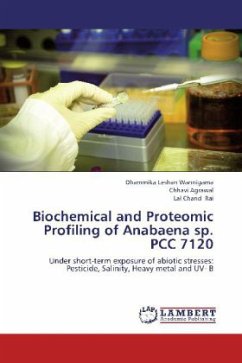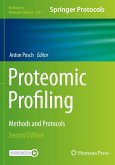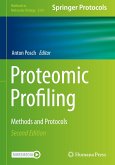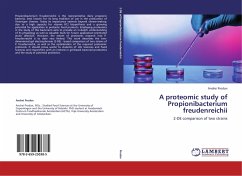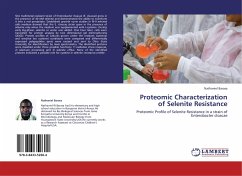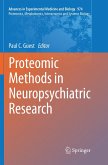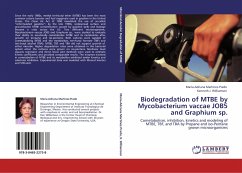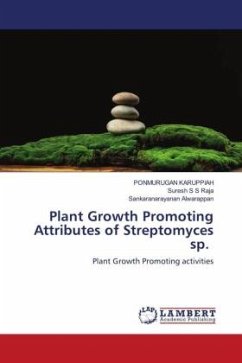Cyanobacteria are significant contributors to global photosynthetic productivity, thus making it relevant to study how the different abiotic stresses can alter their cellular activities. Adaptation to unavoidable environmental stress is crucial for the survival of all living organisms. Under extreme abiotic stress conditions, organic molecules such as lipids, proteins, and nucleic acids are prone to damage and/or degradation. This research aimed to determining the Cellular and molecular aspects of microbial resistance to abiotic stress and understand the physiological functions and proteomics changes or regulation of gene expression during a short-term exposure of the cyanobacterium Anabaena sp. strain PCC7120 to Salinity, Butachlor, Cadmium and UV-B.
Bitte wählen Sie Ihr Anliegen aus.
Rechnungen
Retourenschein anfordern
Bestellstatus
Storno

